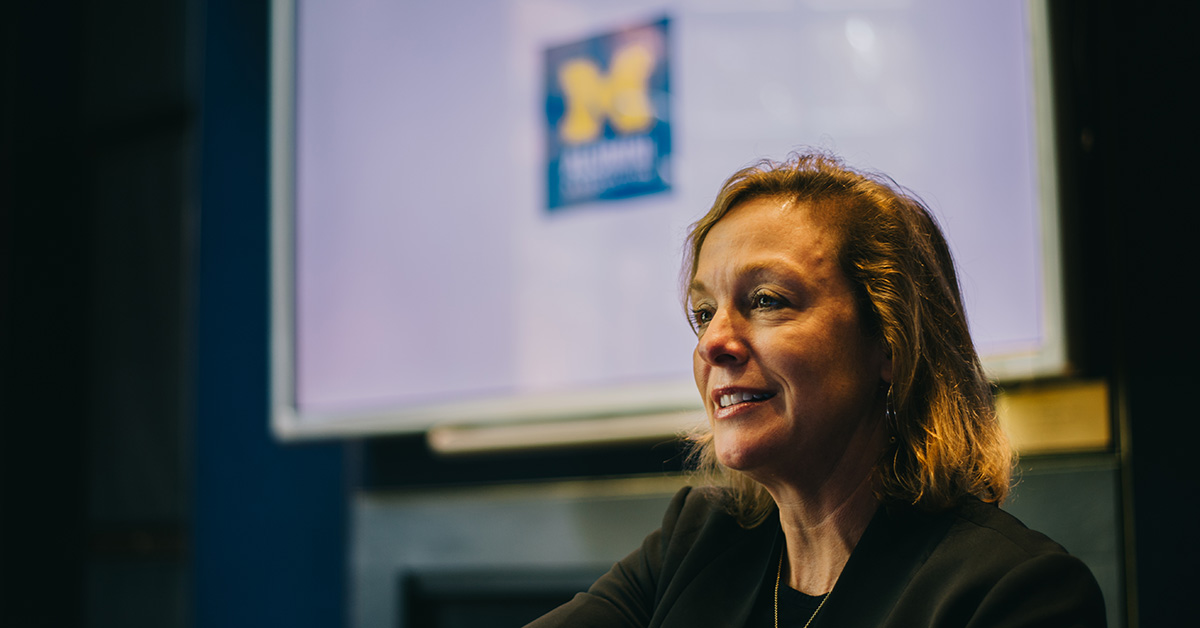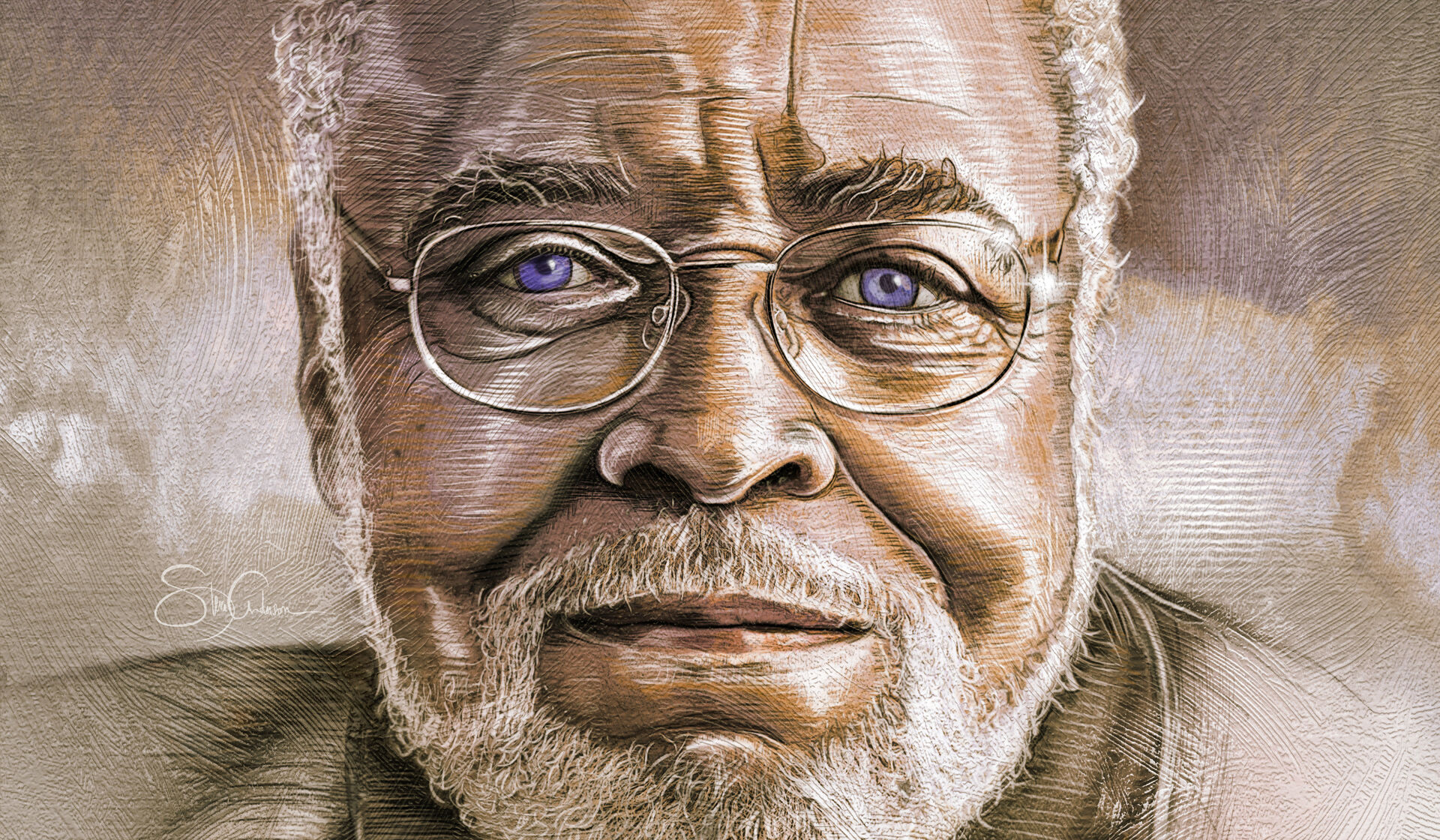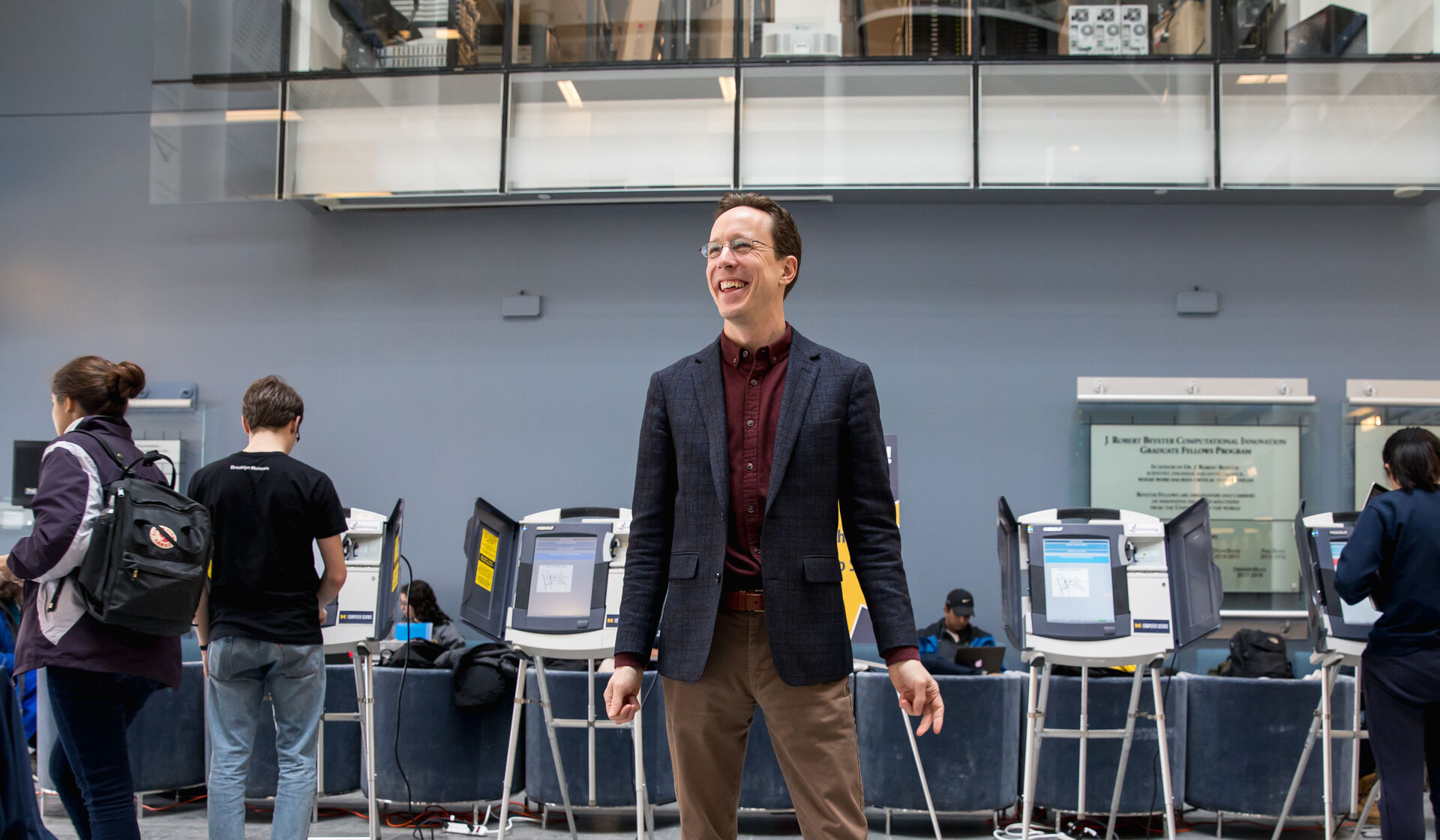Tracy Hart, ’84, is not just president of the St. Louis-based Tarlton Corporation, she is one of the few women in the nation heading up a major construction company. On Nov. 4, 2016, Hart took part in a career panel at the Alumni Center. Afterward, she sat down with our student reporter, U-M junior Anna Haritos, to discuss the successes and challenges she has faced working in a male-dominated industry. She also shared some important insights for women working in any field.
Though your family has run Tarlton since 1945, did you ever imagine as a U-M student you would actually go into the construction business?
Never in a million years. At U-M, I was an English and communications major. When I got out of school, I moved to Chicago, wanting to work in marketing and PR. After a few rejection letters, my father said, “Why don’t you try marketing in a construction company?” I ended up getting a job with Pepper Construction in Chicago and absolutely loving it. Five years later, in 1990, my husband comes home one day and says, “I have a job offer in St. Louis.” Well, given that I grew up there and the family business was there, it made sense to join Tarlton.
So how was it being a woman working in construction?
When I entered the field, it was highly unusual for women to be a part of the construction industry. I think what really helped me was that you can either focus on people’s differences or you can focus on their similarities. I focused on the latter––their passion to build, their passion to get things done, and their passion to make a difference. It helped me transcend the gender difference. Compounding my gender was my youth, as I started right out of school. I think that was actually a bigger barrier than my gender in the beginning. Some clients were maybe 30 years my senior and not as familiar with someone like me.
So how did you prove yourself?
I remember being in a superintendent course where all the other people training had come up through the trade. We had to solve a problem, and I was the only one in the class that got the answer. The instructor said, ‘Well, that’s because Tracy has nurturing capabilities.” I started to see how you can take what would seem like a weakness and make it your strength, your culture. In 1999, when the president of our company retired, my brother (who was also working for Tarlton) and I stepped up to leadership positions. My skills are much more external, so I became the face of the company as president. My engineering-oriented brother became the head of operations.
How did your personality benefit Tarlton?
If you ask, ‘Who is the heart of Tarlton?” that would be me. I probably have a higher empathy component than some of my counterparts. I look at things differently, like family leave. I see how important it is for everyone to have balance in life. We have a family room in our office so when parents are at loose ends, like on President’s Day—which is a school holiday construction companies don’t have off—our parents can bring their children to work, and they will have fun here.
What advice do you have for young professional women?
Today, I see being a woman more as a benefit than a detraction. I would say you have to walk in faith rather than fear. That means taking that first step forward, having the confidence to persevere. We are only as afraid as we let ourselves be. You sit in a meeting and there’s a bunch of CEOs who are maybe 20 years your senior and have a gazillion dollars more than you, and yet you have a voice too, so use it.
Anna Haritos is a junior studying modern Greek, and biopsychology cognition and neuroscience at U-M.





